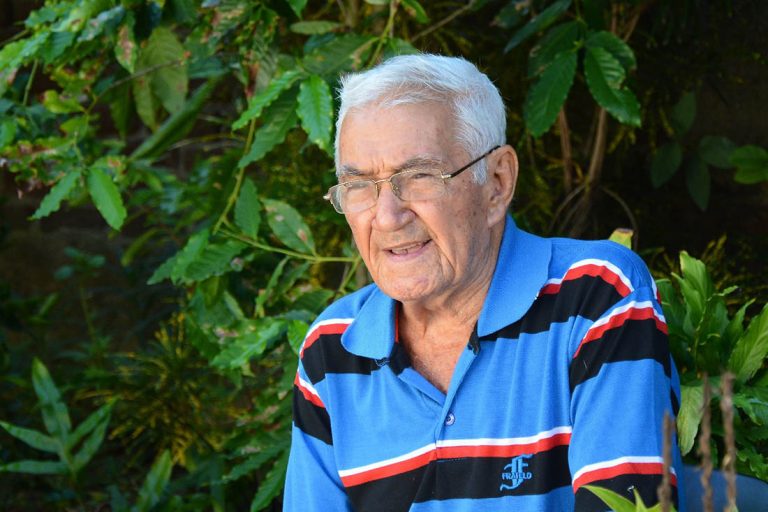The times and their protagonists are not only in history books, many continue anonymous and ready to describe the stage which made their time flourish. This is the case of Alcides Palenzuela Sotolongo, a Floridian dedicated to the Revolution since he was in his mother’s womb.
Dialing phone numbers, consulting with specialists and knocking on doors; I came to the story of this man who was born in 1930. He was a farmer and trade union leader, watched his military parents in the Communist Party and followed in their footsteps to deal with the problems of the working class and the peasantry, because according to him: “a labor leader has to participate in a few discussions so that the workers have all the conditions to work ”.
From the age of thirteen, Palenzuela began to work in a sugarcane colony called San Fernando, which was located in front of the Céspedes sugar mill.
“Before, we all had to start working from the moment we learned to put on our pants. At the age of 14 they gave me the membership of the Party, a somewhat contradictory issue; but the fact was that there was not enough young people to constitute the youth committee, that is why I was first from the party and then from the youth. ”
The sap that feeds me
His family also multiplied in times of growth as a communist. Five children and a dedicated wife, who has spent 86 years by his side, have also being a witness of his dedication as a leader and now as an example for future generations.
Palenzuela is 90 years old now, and the memories of the times he was a prisoner in his fight for the Revolution and the rights of those most in need; they are still intact.
The work at the head of the Party made it possible for him to meet all the general secretaries who passed through the organization before the revolutionary triumph and with many of them he spoke: Let’s have a little fight and then give each other a hug.
After the Revolution triumphed, I was able to get to visit the former Soviet Union and the People’s Republic of China; also to graduate with a Bachelor of Political Science because he was already an agricultural technician; all knowledge that I put in favor of being a better professional and leader. ”
Straight to the point…
Looking for information about the founding of the first Party cell in Camagüey; I found the story of a man who has investigated the organization and has loved it by dedicating his life to it until today.
 He tells us that the first cell of the Communist Party in the province was founded in September 1931, Luis Prada, played an important role in its creation, under the guidance of Blas Roca Calderio.
He tells us that the first cell of the Communist Party in the province was founded in September 1931, Luis Prada, played an important role in its creation, under the guidance of Blas Roca Calderio.
“Exactly on September 16th, 1931, in one of the houses located on San Esteban Street number 183, the first cell was created. There, it was decided to appoint Luis Prada, General Secretary and Manuel Parrado Rodríguez, Organizing Secretary”.
According to his investigation, he assures that Blas said of that moment: “I went through Camagüey and stayed there for a few days. I met with people who were in Luis Prada’s close circle of acquaintances and I thought that a cell could be established. ”
At that time, Palenzuela only had one year to live; but his love for the work of the Party has made him work harder as Mariana Grajales would say, to be 76 years old as a member of its ranks.
“In the last Balance Assembly of the Provincial Committee of the Party that was held in 1956, I was elected organizer and of the 13 colleagues who made up the leadership at that time; I am the only one left”
What it is left for me to do
 “The tasks of the Revolution and the party are my life. I am willing to whatever it is necessary; we are going to build socialism in any way. We stand firm. The party’s leadership is very clear in Cuba. ”
“The tasks of the Revolution and the party are my life. I am willing to whatever it is necessary; we are going to build socialism in any way. We stand firm. The party’s leadership is very clear in Cuba. ”
Alcides Palenzuela Sotolongo is inspired by his coffee plants, lemon, soursop, banana trees; all cultivated with determination like the party and his family that cradles him at 90 years of age. Greenery and harmony are breathed in his cozy patio where together, in the virtuality of this meeting, we met another protagonist, passionate about history and just causes.
Translated by: Aileen Álvarez García






